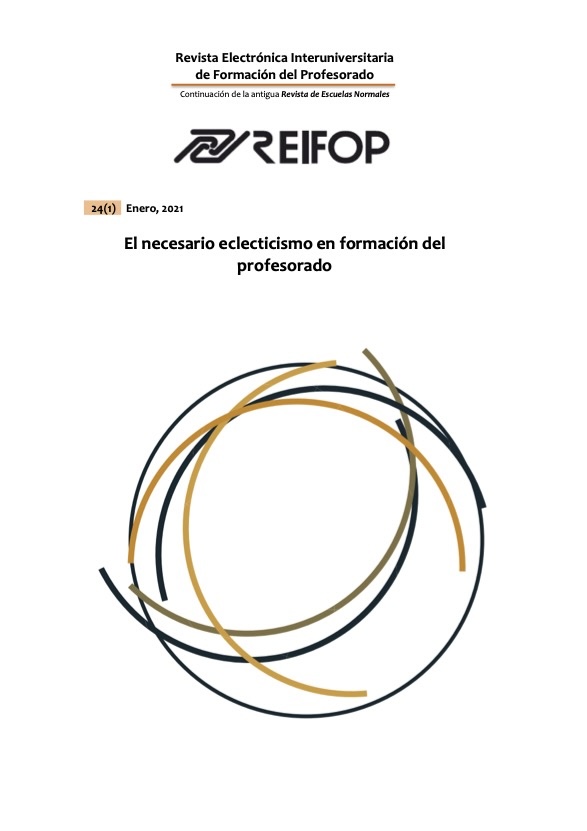La COVID-19 evidencia la necesidad de incrementar las competencias en economía de los estudiantes de veterinaria
Abstract
The Covid-19 pandemic led to extreme control measures around the world aiming to halting the number of new infections. Non-essential activities closures and population confinement had an economic impact on the small ruminant sector, highlighting the need for veterinarians to have some skills to assess the economic impact of diseases on flocks. Firstly, this study analyzed the economic training received by the veterinary students at the Spanish faculties, also comparing it with the ones received by students of the agricultural engineering degree. Secondly, a survey in reference to the acquisition of this type of competences and its application for animal health was designed and applied for graduates and final-year veterinary students. The data showed that the ECTS taken to acquire the economic skills of veterinarians is less (3-6 ECTS in 5 years) than that of agricultural engineers (12 ECTS in 4 years). The results of the survey also showed that, although there are significant differences between graduates and students, both them are largely in agreement on the little training received to assess the impact of diseases, and on the need for an additional training after completing their studies. Therefore, these skills should be reinforced in the degree. Among the graduates, the opinion is similar, regardless of the years of professional experience.Downloads
-
Abstract733
-
PDF (Español (España))345
References
Climént, J.B. (2014). Tipología de las competencias en educación veterinaria. Revista de Investigaciones Veterinarias del Perú 25(2), 293-316.
DIRECTIVA 2005/36/CE DEL PARLAMENTO EUROPEO Y DEL CONSEJO de 7 de septiembre de 2005. relativa al reconocimiento de cualificaciones profesionales. https://www.boe.es/doue/2005/255/L00022-00142.pdf.
European System of Evaluation of Veterinary Training (2019). Manual of Standard Operating Procedure.https://www.eaeve.org/fileadmin/downloads/SOP/ESEVT_SOP_2019_adopted_by_the_32nd_GA_in_Zagreb_on_30_May_2019_Updated_Annexes_16a___16b.pdf.
Food and Agriculture Organization of the United Nations (FAO) (2010). Price Volatility in Agricultural Markets: Evidence, Impact on Food Security and Policy Responses. Economic and Social Perspectives; Policy Brief No. 12; FAO Economic and Social Development Department: Rome, Italy.
Gortázar, C., and de la Fuente, J. (2020). COVID-19 is likely to impact animal health. Preventive Veterinary Medicine, 180, 105030.
Le Gall, F.G. (2006). Justificación económica y social de las inversiones en materia de sanidad animal y zoonosis. Conf. OIE 2006, 71-86.
Libro Blanco Título de Grado de Veterinaria. http://www.aneca.es/var/media/150400/libroblanco_jun05_veterinaria.pdf
McInerney, J. P., Howe, K. S., and Schepers, J.A. (1992). A framework for the economic analysis of disease in farm livestock. Preventive Veterinary Medicine, 13(2), 137-154.
ORDEN ECI/333/2008, de 13 de febrero, por la que se establecen los requisitos para la verificación de los títulos universitarios oficiales que habiliten para el ejercicio de la profesión de Veterinario. BOE núm. 40 de 15 febrero 2008.
Rodríguez-Antón, J.M., and Alonso-Almeida, M.M. (2020). COVID-19 Impacts and Recovery Strategies: The Case of the Hospitality Industry in Spain. Sustainability, 12, 8599.
Rushton, J. (2009). Economics of Animal Health and Production. UK: CABI.
Rushton, J., Jackson, E., Häsler, B., and Redmond, E.F. (2016). Economics of production animal health. OIE, Veterinary Education Conference.
Vidaurreta, I., de la Fe, C., Orengo, J., Gómez-Martín, A., and Benito, B. (2020). Short-term economic impact of COVID-19 on Spanish small ruminant flocks. Animals, 10(8), 1357.
Vidaurreta, I., Orengo, J., de la Fe, C., González, J. Mª., Gómez-Martín, A., and Benito, B. (2020). “Price fluctuation, Protected Geographical Indications and Employment in the Spanish Small Ruminant sector during the COVID-19 crisis”, Animals, 10(12), 2221.
Wapenaar, W. (2015). Interview to Dr Ana M. Bravo del Moral. REDU. Revista de Docencia Universitaria, 13(3), 207-210.
Los artículos que se publican en esta revista están sujetos a los siguientes términos:
1. El Departamento de Métodos de Investigación y Diagnóstico en Educación de la Universidad de Murcia (España), junto con el Servicio de Publicaciones de la Universitdad de Murcia (Editum) son los editores de la revista REIFOP y conserva los derechos patrimoniales (copyright) de los artículos publicados, permitiendo la reutilización de las mismos bajo la licencia de uso indicada en el punto 2.
2. Las obras se publican en la edición electrónica de la revista bajo una licencia Creative Commons Reconocimiento-NoComercial-SinObraDerivada 3.0 España (texto legal). Se pueden copiar, usar, difundir, transmitir y exponer públicamente, siempre que: i) se cite la autoría y la fuente original de su publicación (revista, editores y URL de la obra); ii) no se usen para fines comerciales; iii) se mencione la existencia y especificaciones de esta licencia de uso.
3. Condiciones de auto-archivo. Se permite y se anima a los autores a difundir electrónicamente las versiones pre-print (versión antes de ser evaluada) y/o post-print (versión evaluada y aceptada para su publicación) de sus obras antes de su publicación, ya que favorece su circulación y difusión más temprana y con ello un posible aumento en su citación y alcance entre la comunidad académica. Color RoMEO: verde.















